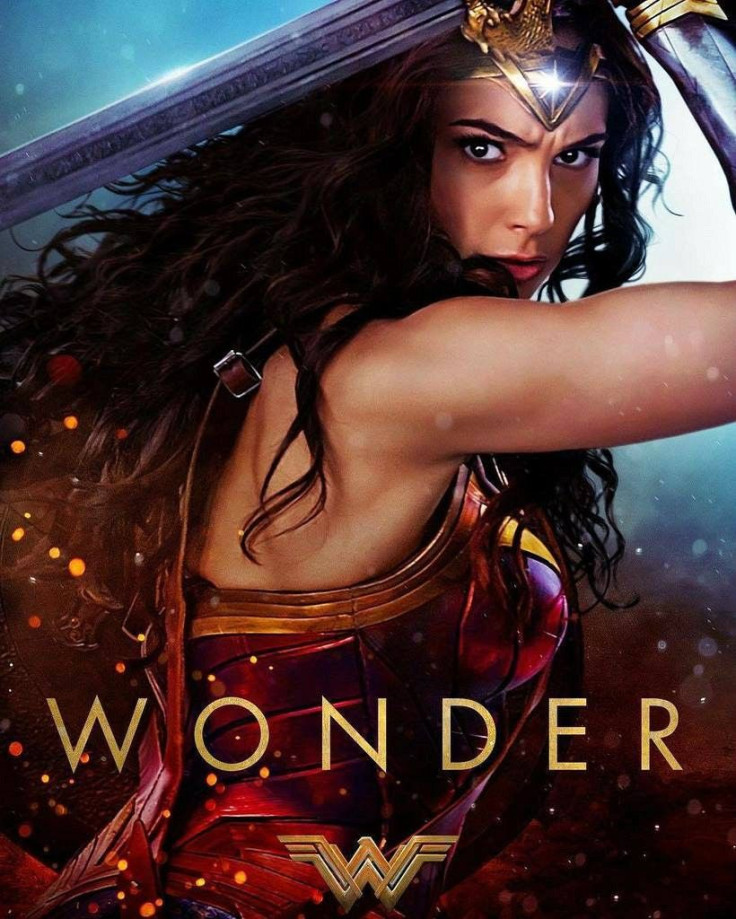Lebanon banned Wonder Woman hours before its Beirut premiere. The decision, made by a six-member Ministry of Economy committee, will keep the movie from playing in 15 theaters.
In the absence of an official statement from the Lebanese government, most Western media outlets have claimed Wonder Woman was banned because its star Gal Gadot is Israeli. But these accounts miss some key context and give a distorted impression of the likely rationale behind the Wonder Woman ban in Lebanon.
Most articles reporting on the Wonder Woman ban have offered a similar explanation, citing Gadot’s Israeli citizenship, military service and the ongoing state of war between the two countries. The Hollywood Reporter ’s description is typical:
The decision was made by the Lebanese government, taking issue with the fact that the film’s star, Gal Gadot, is Israeli and served in the military (all Israeli citizens serve in the military). Lebanon is officially at war with Israel.
Other headlines include Reuters’ “Lebanese ministry bans Wonder Woman film over Israeli actress,” the BBC’s “Wonder Woman banned by Lebanon over Israeli lead Gal Gadot.”
#WonderWoman has been banned in #Lebanon.
— Grand Cinemas Lebanon (@GCLebanon) May 31, 2017
While more news-focused outlets like those above have offered some key context beyond the headline, more tabloid-y news outlets and less precise movie sites have flattened the narrative into a story of simple prejudice on the part of Lebanon.
The Washington Examiner article opens, “Lebanon has banned the new film Wonder Woman because the lead actress, Gal Gadot is Israeli.”
Movie site Slashfilm writes, “the country of Lebanon has banned all screenings of Wonder Woman nationwide, due to the fact that star Gal Gadot is Israeli.”
But the very worst may be the Los Angeles Times headline, which states that the ban was due to Gadot’s “heritage,” a headline that seems to insinuate that the ban is primarily motivated by antisemitism.
Lebanon might ban the new "Wonder Woman" because of star Gal Gadot's Israeli heritage https://t.co/30rIaishj1 pic.twitter.com/bm5H7yNO2R
— Los Angeles Times (@latimes) May 31, 2017
These headlines and ledes provide an incomplete impression, suggesting that the ban is only about the lead actor’s nationality. At best, the vast majority of stories and headlines surrounding the ban are incomplete, at worst they’re outright distortions.
The crucial context missing from most stories are Gal Gadot’s defense of (and connection to) Israel Defense Force attacks and the asymmetrical warfare campaign conducted by Israel throughout the 2006 Lebanon War.
Gadot served her mandatory time in the Israeli military as a combat trainer during the war between Israel and Lebanon. While her thoughts about that conflict aren’t public, she remained an enthusiastic supporter of the IDF after her conscription period, including of its 2014 operations in the Gaza Strip, part of an ongoing blockade that a United Nations report concluded constituted collective punishment of the entire Gazan population, in “flagrant contravention of international human rights and humanitarian law.”
The 2014 Israel-Gaza conflict, which killed between 1,400 and 1,600 Palestinian civilians, further immiserated a Palestinian population already low on crucial medical supplies, fuel and shelter. In a comment on Facebook, Gadot found nothing wrong with IDF’s handling of the conflict, writing:
“I am sending my love and prayers to my fellow Israeli citizens. Especially to all the boys and girls who are risking their lives protecting my country against the horrific acts conducted by Hamas, who are hiding like cowards behind women and children…We shall overcome!!! Shabbat Shalom! #weareright #freegazafromhamas #stopterror #coexistance #loveidf”
Just as in Gaza, the 2006 Lebanon War saw one of the strongest military powers in the world, backed by the United States, batter a largely civilian populace, resulting in mass slaughter. Israel’s invasion of Lebanon, prompted by a Hezbollah attack that killed three Israeli soldiers, resulted in the deaths of between 1,191 and 1,300 Lebanese people, mostly civilians, while Israeli suffered 165 dead (45 civilians).
News media watchdog Adam Johnson and Alternet reporter Ben Norton provided critical context left out of the vast majority of coverage surrounding Lebanon’s Wonder Woman ban:
this piece of context is almost always missing when discussing Lebanese hatred of Israel, giving the impression it's mindless anti-semitism.
— Adam H. Johnson (@adamjohnsonCHI) May 30, 2017
Head of Israeli military rocket unit in Lebanon admitted, "What we did was insane and monstrous, we covered entire towns in cluster bombs" pic.twitter.com/3TjbS32sXn
— Ben Norton (@BenjaminNorton) May 30, 2017
The only mainstream source providing anywhere close to an understanding of the conflict was Reuters, which wrote, “the 2006 war killed around 160 Israelis, most of them troops fighting inside Lebanon, while 1,200 people in Lebanon, mostly civilians, died in Israel’s military barrages.”
Every other publication seems to have been satisfied with a woefully incomplete explanation, implying the ban was predominantly about cultural prejudice. None of this is to say that Gal Gadot is responsible for Israeli military policy or can be used as an excuse for government censorship. The full context doesn’t exculpate Lebanon for the Wonder Woman ban. Censorship continues to suck ass. Instead, the full context highlights how the predominant American media narrative surrounding the Wonder Woman ban engages in a quiet coverup of the full violence and suffering motivating Lebanon’s bad decision.















![[EG April 19] Best 'Stardew Valley' Mods That Will Change](https://d.player.one/en/full/226012/eg-april-19-best-stardew-valley-mods-that-will-change.png?w=380&h=275&f=955520b8313253ee3c39c791f6210f38)


